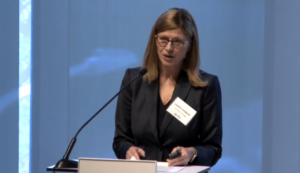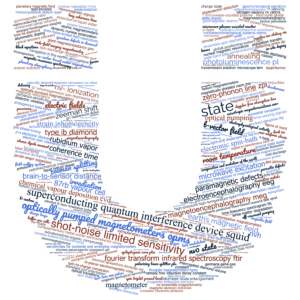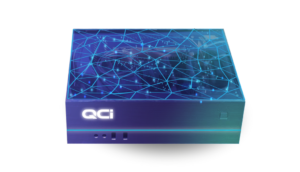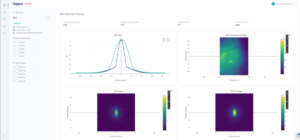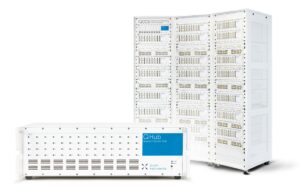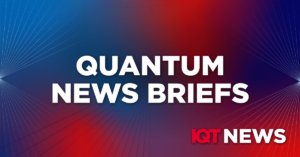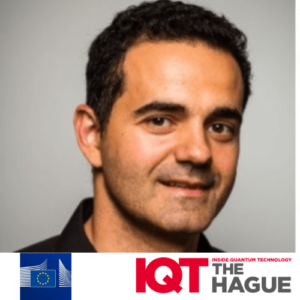By Sandra Helsel objavljeno 21. septembra 2022
Quantum News Briefs 21. september opens with news from Zapata Computing and the University of Hull about their collaboration on quantum-ready space exploration followed by NYU’s Center for Quantum Information Physics & IBM Quantum partner to train NYU grads & undergrads in Quantum Information Physics. Third is a discussion of Bitcoin versus quantum computers: CISA warns contemporary encryption could break & MORE.
*****
Zapata Computing and the University of Hull continue collaboration on quantum-ready space exploration
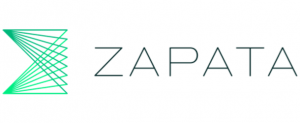 Zapata Computing announced that it has made significant headway in its mission to get the University of Hull quantum-ready for future space exploration. Quantum News Briefs summarizes the announcement below.
Zapata Computing announced that it has made significant headway in its mission to get the University of Hull quantum-ready for future space exploration. Quantum News Briefs summarizes the announcement below.
One year into the collaboration both teams have seen enough progress to extend their plans for expanding the search for indicators of life in deep space.
Together, Zapata and the University of Hull developed new techniques to extrapolate meaningful data from noisy quantum devices and used it to calculate the ro-vibrational spectrum of hydrogen to obtain results that are comparable with the state-of-the-art classical simulations, as well as the experimental results. The results obtained with these new quantum techniques can already be used to detect molecular hydrogen in space.
A big part of the progress is due to the University of Hull’s successful migration of Big Compute capabilities from classical to quantum computers. Big Compute is Zapata’s term for the market category for heterogeneous and distributed compute resources needed to address enterprise and other technologically advanced organizations’ most computationally complex problems. It builds on previous technical revolutions like Big Data and AI and leverages a wide spectrum of classical (e.g., GPU, TPU, CPU), high-performance (HPC) and quantum compute resources (e.g., quantum-inspired computers, NISQ devices, fault-tolerant quantum computers).
“The scale of what we are trying to accomplish today is daunting,” said Dr. David Benoit, senior lecturer in Molecular Physics and Astrochemistry at the University of Hull. “There are over 16,000 different life-indicating molecules that we’re searching for in space, but we could increase our search significantly with quantum computers as they become more powerful in the future. And we’re going to need that power. We’re not looking for a needle in a haystack here. That would be easy. This effort is more like looking for a speck of dust in a warehouse through a straw.”
*****
NYU’s Center for Quantum Information Physics & IBM Quantum partner to train NYU grads & undergrads in Quantum Information Physics
 New York University’s Center for Quantum Information Physics and IBM Quantum, a research arm of the technology corporation, have established a partnership to train NYU undergraduates and graduates in quantum information physics.
New York University’s Center for Quantum Information Physics and IBM Quantum, a research arm of the technology corporation, have established a partnership to train NYU undergraduates and graduates in quantum information physics.
IBM Quantum will hire undergraduate and graduate student researchers at the NYU Center for Quantum Information Physics as paid interns in the company’s summer internship program. Students who participate in the program will spend the summer conducting joint research in quantum information physics at both IBM and NYU.
“Quantum computing has the potential to solve valuable problems that are intractable to classical computation,” says IBM Quantum researcher and North America education lead Olivia Lanes. “And the field is much, much closer to realizing that potential than I think most people understand. When you have a technology that’s maturing as quickly as quantum is, then you need these kinds of industry-academic partnerships to build a workforce that is capable of wielding that technology effectively. NYU has long been an enormous contributor to quantum information science. Now, following the launch of its Center for Quantum Information Physics, we’re thrilled to do our part to take their student researchers to the next level.”
*****
A new scheme to correct quantum errors
 Dr. Sangkha Borah, a postdoctoral researcher in the Quantum Machines Unit led by Professor Jason Twamley at the Okinawa Institute of Science and Technology (OIST) and their collaborators at Trinity College in Dublin, Ireland, and the University of Queensland in Brisbane, Australia, have proposed a new quantum error correction (QEC) technique. Quantum News Briefs povzema spodaj.
Dr. Sangkha Borah, a postdoctoral researcher in the Quantum Machines Unit led by Professor Jason Twamley at the Okinawa Institute of Science and Technology (OIST) and their collaborators at Trinity College in Dublin, Ireland, and the University of Queensland in Brisbane, Australia, have proposed a new quantum error correction (QEC) technique. Quantum News Briefs povzema spodaj.
“If we can figure out how to accurately perform QEC, we might have usable quantum computers very soon.”
Achieving QEC involves making a collection of multiple qubits using a quantum mechanical property called entanglement. To detect errors happening in the qubits, a QEC scheme must apply a series of measurements known as syndrome measurements. These measurements assess whether two nearest neighbor qubits are aligned in the same direction or not. The results of these measurements are called syndromes, and based them, the error in the qubits can be detected and subsequently corrected.
Commonly used QEC schemes are usually slow, and they also result in a rapid loss of information stored in the qubits due to errors they fail to catch and correct in real time. Dr. Borah and his colleagues used an approach called continuous measurement. Such measurements can be carried out much more rapidly than conventional projective measurements in a highly resource-efficient way. They developed a QEC scheme called measurement-based estimator scheme for continuous quantum Napaka correction (MBE-CQEC), which could quickly and efficiently detect and correct errors from partial, noisy syndrome measurements. They set up a powerful classical computer to act as an outside controller (or estimator) that estimates errors in the quantum system, filters out the noise perfectly, and applies feedback to correct them.
The complete effort was recently published in Physical Review Research.
*****
Bitcoin versus quantum computers: CISA warns contemporary encryption could break
 Kriptovalute, ki uporabljajo sodobne tehnike šifriranja, bi lahko nekega dne zlomili kvantni računalniki, skupaj z drugimi digitalnimi komunikacijami, kot so e-pošta, storitve sporočanja in spletno bančništvo. To je po nedavnem Poročilo CISA published at the end of August. Quantum News Briefs summarizes a recent discussion by Jamie Redman, the News Lead for the Bitcoin.com about the U.S. government’s recent issue of the CISA quantum-warning and its meaning for the crypto community. Click here to read Redman’s extensive article in Bitcoin.
Kriptovalute, ki uporabljajo sodobne tehnike šifriranja, bi lahko nekega dne zlomili kvantni računalniki, skupaj z drugimi digitalnimi komunikacijami, kot so e-pošta, storitve sporočanja in spletno bančništvo. To je po nedavnem Poročilo CISA published at the end of August. Quantum News Briefs summarizes a recent discussion by Jamie Redman, the News Lead for the Bitcoin.com about the U.S. government’s recent issue of the CISA quantum-warning and its meaning for the crypto community. Click here to read Redman’s extensive article in Bitcoin.
The U.S. government Cybersecurity and Infrastructure Security Agency (CISA) entity stresses in its report that a transition to post-quantum cryptography is necessary. “Do not wait until the quantum computers are in use by our adversaries to act,” CISA’s report details. “Early preparations will ensure a smooth migration to the post-quantum cryptography standard once it is available.”
many people think the government’s warnings and the recent quantum-based technological achievements by Honeywell, Google, Microsoft, and others, are the incentives people need to embrace post-quantum cryptography.
Quantum computers utilize intricate physics in order to calculate powerful equations related to today’s contemporary crypto and mathematical systems. Since 1998, super quantum computers have improved with 14 zapletenih kubitov kalcijevih ionov V 2011, 16 superprevodnih kubitov v 2018 in 18 zapletenih kubitov leta 2018. CISA pravi, da bodo kvantni računalniki ustvarili nove priložnosti, vendar ima tehnologija tudi negativne posledice v smislu varnosti šifriranja.
»Nacionalne države in zasebna podjetja aktivno iščejo zmogljivosti kvantnih računalnikov,« podrobno opisuje poročilo CISA. »Kvantno računalništvo odpira vznemirljive nove možnosti; vendar pa posledice te nove tehnologije vključujejo grožnje trenutnim kriptografskim standardom.«
Številni članki, raziskovalna poročila in mainstream naslovi trdijo, da bo kvantno računalništvo zlomiti vsako sodobno šifriranje in celo napoved prometnih zastojev in nesreč precej preden se zgodijo. Vendar pa so zagovorniki bitcoina ob različnih priložnostih povedali, da je šifriranje SHA256, ki ga uporablja Satoshijeva stvaritev, močan sovražnik postkvantnemu svetu.
*****
Sandra K. Helsel, dr. raziskuje in poroča o mejnih tehnologijah od leta 1990. Ima doktorat znanosti. z Univerze v Arizoni.



